ADDICTION
ALCOHOL DEPENDENCE
QUIT SMOKING
ALLERGY
ANTI FUNGAL
FUNGAL INFECTION
FUNGAL NAIL INFECTIONS
ANTI-REJECTION DRUGS
ANTI WORM
ANTIBIOTIC
BACTERIAL INFECTIONS
ARTHRITIS
GOUT
OSTEOARTHRITIS
RHEUMATOID ARTHRITIS
BLOOD
LOW PLATELET COUNT
THROMBOPHLEBITIS
VARICOSE VEINS
COLON
ANAL FISSURE
PILES
ULCERATIVE COLITIS
DIABETES CARE
DIABETES INSIPIDUS
DIABETES TYPE
DIABETIC FOOT ULCERS
GLUCOSE MONITOR
EYES/EAR CARE
DRY EYES
EYE CARE
EYE EXAMINATION
EYE INFECTION
EYE LASHES
EYE PAIN
GLAUCOMA
OCULAR HYPERTENSION
UVEITIS
FEVER CARE
MALARIA
RHEUMATIC FEVER
TYPHOID FEVER
GASTROINTESTINAL
ACIDITY
CONSTIPATION
CROHN'S DISEASE
DIARRHOEA
GALLBLADDER STONES
INTESTINAL ULCERS
IRRITABLE BOWEL SYNDROME
MOTION SICKNESS
NAUSEA
Theo Asthalin Forte (Salbutamol/Theophylline)
| Active Ingredient (Generic Name): | Salbutamol/Theophylline |
|---|---|
| Indication: | Asthma |
| Manufacturer: | Cipla Limited |
| Packaging: | 10 tablets in one strip |
From: $36.00
Understanding the benefits, uses, and potential interactions of Theo Asthalin Forte is crucial for maximizing its effectiveness. This medication combines salbutamol and theophylline to provide dual-action relief from respiratory distress. Salbutamol acts as a bronchodilator, relaxing airway smooth muscle, while theophylline relaxes airway muscles, reducing bronchial constriction and inflammation. This combination enhances respiratory distress management by targeting multiple angles. Theo Asthalin Forte is prescribed to alleviate symptoms of bronchitis, asthma, and COPD. Understanding these aspects is essential for optimal use of this medication.
Main Points
- Theo Asthalin Forte combines theophylline and salbutamol to relax airway muscles, increase bronchodilation, and reduce inflammation.
- It treats symptoms of bronchitis, asthma, and COPD, such as wheezing, coughing, and shortness of breath.
- The recommended adult dose is 1-2 tablets orally every 12 hours, swallowed whole with water without crushing or chewing.
- Theo Asthalin Forte may interact with certain medications, and precautions are necessary for pregnant women, breastfeeding women, children, older adults, and patients with underlying conditions.
- Overdose symptoms include nausea, vomiting, rapid heartbeat, tremors, seizures, and cardiac arrhythmias, requiring proper storage and disposal guidelines.
What Is Theo Asthalin Forte?
Theo Asthalin Forte is a medication that combines theophylline and salbutamol to treat respiratory conditions like asthma, chronic bronchitis, and COPD. Theophylline relaxes airway muscles, reducing constriction, while salbutamol acts as a bronchodilator, expanding the airways for easier breathing. Consulting a healthcare professional is crucial to determine the right dosage and treatment plan for individual needs.
Salbutamol and Theophylline Mechanism
When Theo Asthalin Forte is taken, the combination of salbutamol and theophylline works together to alleviate respiratory distress by targeting different aspects of bronchial constriction. Salbutamol, a beta-2 adrenergic receptor agonist, relaxes airway smooth muscle, increasing bronchodilation and reducing bronchospasm. This rapid-acting bronchodilator quickly relieves acute bronchospasm, making it an effective treatment for acute asthma attacks.
Theophylline, a methylxanthine, inhibits phosphodiesterase, an enzyme that breaks down cyclic adenosine monophosphate (cAMP). Elevated cAMP levels relax airway smooth muscle, reducing bronchial constriction and improving lung function. Theophylline also possesses anti-inflammatory properties, aiding in the reduction of airway inflammation and hyperresponsiveness.
The combination of salbutamol and theophylline in Theo Asthalin Forte offers a dual mechanism of action, addressing both bronchial constriction and inflammation. These two active ingredients work synergistically to provide rapid and sustained relief from respiratory distress, allowing for easier breathing and more effective management of respiratory conditions.
Benefits of Combining Ingredients
By combining salbutamol and theophylline in Theo Asthalin Forte, you can optimize the management of respiratory distress by leveraging the strengths of both ingredients. This combined approach enhances the effectiveness of the treatment by addressing respiratory issues from multiple angles. Salbutamol’s bronchodilatory effects, which relax airway muscles and improve airflow, are complemented by theophylline’s anti-inflammatory properties and lung function improvement. This dual action targets both immediate symptoms like wheezing and shortness of breath, as well as the underlying inflammation contributing to these symptoms. Additionally, the synergy between these ingredients can help minimize the potential side effects associated with individual medication use. Overall, the combined benefits of salbutamol and theophylline in Theo Asthalin Forte offer a comprehensive strategy for managing respiratory conditions, promoting better breathing and enhanced respiratory health.
How Theo Asthalin Forte Works
Theo Asthalin Forte works by triggering bronchodilation, which relaxes airway muscles and improves breathing. It blocks inflammation effects, helping to alleviate respiratory issues and promote easier breathing.
Bronchodilation Mechanism Explained
The bronchodilation mechanism of Theo Asthalin Forte involves the relaxation of airway smooth muscle by increasing cyclic adenosine monophosphate (cAMP) levels. This increase in cAMP is enabled by inhibiting phosphodiesterase, the enzyme responsible for cAMP breakdown. Elevated cAMP levels activate protein kinase A, which then phosphorylates and deactivates myosin light chain kinase, reducing calcium ion concentrations and leading to smooth muscle relaxation and bronchodilation. Theophylline, a key component of Theo Asthalin Forte, inhibits phosphodiesterase to increase cAMP levels, while salbutamol works in synergy with theophylline to enhance the bronchodilatory effect. Understanding how Theo Asthalin Forte modulates cAMP levels and smooth muscle relaxation provides insight into its therapeutic mechanisms.
Relaxing Airway Muscles
When Theo Asthalin Forte is inhaled, its active ingredients work by blocking the signals that cause your airway muscles to contract. This action helps to relax the muscles, allowing the airways to widen and improve breathing. By reducing muscle tension, increasing airflow to the lungs, and relieving bronchospasm, Theo Asthalin Forte enhances overall respiratory health and lung function.
Blocking Inflammation Effects
Reducing inflammation with Theo Asthalin Forte helps prevent airway swelling, improving airflow and relieving respiratory distress. Inflammation contributes significantly to airway constriction and breathing difficulties. The salbutamol component in Theo Asthalin Forte blocks the release of inflammatory chemicals like leukotrienes and prostaglandins, triggered by allergic reactions or infections. This action reduces the inflammatory response, lessening airway swelling and constriction for better airflow and respiratory relief. The theophylline component also possesses anti-inflammatory properties, aiding in reducing inflammation and alleviating respiratory symptoms. Blocking inflammation with Theo Asthalin Forte promptly relieves bronchospasm, making breathing easier.
Uses for Respiratory Conditions
Theo Asthalin Forte is used to alleviate symptoms associated with respiratory conditions like bronchitis, asthma, and chronic obstructive pulmonary disease (COPD). This medication effectively manages symptoms such as wheezing, coughing, and shortness of breath, providing relief from respiratory distress and improving lung function. Specific uses include relieving bronchospasm in asthma and COPD, reducing inflammation in the airways, improving lung function and oxygen intake, managing symptoms of chronic bronchitis, and providing rapid relief from acute asthma attacks.
Dosage and Administration Guide
For optimal treatment outcomes, it is crucial to adhere to the prescribed dosage and administration instructions for Theo Asthalin Forte.
Your doctor will determine the appropriate dosage based on your medical history, current condition, and response to the medication. Typically, the recommended adult dose is 1-2 tablets taken orally every 12 hours. The dosage may be adjusted by your doctor as needed.
Swallow the tablets whole with a full glass of water and do not crush, chew, or break them, as this can impact the medication’s effectiveness. Take the tablets at the same time daily, with or without food, as instructed by your doctor.
Following the recommended dosage schedule and administration guidelines is essential for the safe and effective use of the medication. If you miss a dose, take it as soon as you remember, unless it is close to your next scheduled dose. Do not double up on doses or take extra medication to make up for a missed dose.
Common Side Effects to Expect
When starting Theo Asthalin Forte, expect common side effects that are typically mild and temporary. These effects are a normal reaction to the medication and should diminish as your body adapts. Common side effects include headaches, dizziness, nausea, vomiting, insomnia, and muscle cramps.
Rare but Serious Side Effects
When considering Theo Asthalin Forte, it’s crucial to be aware of potential rare but serious side effects. Watch for indications of cardiac arrest, allergic reactions, and respiratory failure, as these can have significant consequences if not addressed promptly. Understanding the risks associated with these severe side effects is essential for being prepared to take appropriate action if needed.
Cardiac Arrest Risks
It is essential to understand the risk of cardiac arrest while taking Theo-Asthalin Forte and take necessary precautions. Factors that can increase the risk include a history of heart disease or cardiac arrhythmias, recent heart attack or stroke, severe respiratory diseases like chronic obstructive pulmonary disease (COPD), electrolyte imbalance (especially low potassium levels), and the use of other medications affecting the heart, such as beta-blockers or certain antidepressants. Prior to using Theo-Asthalin Forte, discuss your medical history and concerns with your doctor to assess the benefits and risks and create a plan to minimize the risk of cardiac arrest.
Allergic Reaction Symptoms
When taking Theo-Asthalin Forte, it is crucial to recognize potential rare and severe allergic reactions that may arise, such as hives, breathing difficulties, or swelling of the face, lips, tongue, or throat. These reactions can emerge suddenly and necessitate immediate medical attention.
| Symptom | Description | Action |
|---|---|---|
| Hives | Red, itchy, swollen patches on the skin | Seek urgent medical assistance |
| Difficulty Breathing | Shortness of breath, wheezing, coughing | Contact emergency services or visit the ER |
| Swelling | Face, lips, tongue, or throat | Seek immediate medical help |
| Anaphylaxis | Airway constriction, rapid heartbeat, dizziness | Administer prescribed epinephrine and call emergency services |
If any of these symptoms occur, do not delay seeking medical aid. Prioritize caution when dealing with allergic reactions.
Respiratory Failure Cases
Theo-Asthalin Forte may rarely lead to respiratory failure, a severe condition characterized by inadequate oxygenation or ventilation. It is crucial to be aware of this potential side effect while using this medication. Respiratory failure can present in various ways, so it is essential to promptly recognize the symptoms.
Seek immediate medical attention if you experience:
- Shortness of breath or difficulty breathing
- Blue-tinged lips or fingers
- Confusion or loss of consciousness
- Rapid heart rate or palpitations
- Chest pain or tightness
Drug Interactions to Avoid
Theo Asthalin Forte may interact with beta-blockers, diuretics, and MAOIs, affecting their effectiveness. Adjustments to dosages or close monitoring may be necessary when using these medications simultaneously. Beta-blockers can hinder the bronchodilatory effects of salbutamol, while diuretics can elevate the risk of hypokalemia. MAOIs may also heighten the risk of theophylline toxicity.
Caution is advised when combining Theo Asthalin Forte with certain antidepressants like tricyclic antidepressants and fluoxetine, as they can raise theophylline levels. Additionally, cimetidine, a histamine-2 blocker, can boost theophylline levels by slowing its metabolism. Quinolone antibiotics such as ciprofloxacin can also increase theophylline levels by decreasing its clearance.
To mitigate the risk of interactions, disclose all current medications to your healthcare provider. Adjustments to dosages or alternative treatments may be recommended to ensure the safe and effective use of Theo Asthalin Forte.
Precautions for Special Populations
Special precautions are required for specific populations when taking Theo Asthalin Forte. It is crucial to be mindful of these precautions for safe and effective treatment:
- Pregnant Women: Notify your healthcare provider if you are pregnant or planning to conceive. Theo Asthalin Forte may impact fetal development, and the risks versus benefits should be assessed.
- Breastfeeding Women: Use caution, as salbutamol and theophylline are present in breast milk. Monitor your baby for any signs of medication exposure, such as vomiting, diarrhea, or irritability.
- Children: Administer Theo Asthalin Forte carefully in pediatric patients, as theophylline can lead to adverse effects like nausea, vomiting, and headaches.
- Older Adults: Older individuals may be more prone to experiencing theophylline’s side effects, such as confusion, dizziness, and falls.
- Patients with Underlying Conditions: Disclose any pre-existing health issues, such as heart conditions, hypertension, or liver disease, as they may interact with Theo Asthalin Forte.
Overdose Symptoms and Treatment
In case of Theo Asthalin Forte overdose, promptly recognize symptoms like nausea, vomiting, rapid heartbeat, tremors, and seizures. In severe instances, cardiac arrhythmias, high blood pressure, and cardiac arrest may occur. Contact local emergency services or the national poison control center immediately if overdose is suspected.
While awaiting assistance, remain calm and still, avoiding stimulating activities. If instructed by a healthcare professional, induce vomiting to remove any remaining medication. Upon hospitalization, expect treatment with activated charcoal to absorb toxins and supportive care for symptom management. Medications may be necessary for controlling seizures, arrhythmias, or other complications. Adhere to prescribed Theo Asthalin Forte dosage to prevent overdose and ensure well-being.
Storing and Disposing of Medication
Proper storage of Theo Asthalin Forte medication is crucial to maintain its effectiveness and prevent accidental ingestion. Store the medication in a cool, dry place, away from direct sunlight and out of reach of children. It is important to follow correct disposal procedures to prevent environmental damage and accidental exposure. Understanding the appropriate methods for discarding unused or expired medication is essential.
Proper Storage Techniques
Store Theo Asthalin Forte in a cool, dry place, away from direct sunlight and moisture to maintain its effectiveness and safety. Follow these guidelines for proper storage:
- Keep the medication in its original packaging, tightly closed, and out of reach of children and pets.
- Avoid storing in high humidity areas like bathrooms or kitchens.
- Keep away from heat sources, ovens, or radiators.
- Store away from strong odors to prevent absorption.
- Check the expiration date regularly and discard if expired or degraded.
Safe Disposal Methods
Proper disposal of Theo Asthalin Forte is essential to prevent accidental ingestion, overdose, or environmental harm. There are two main methods for discarding expired, degraded, or unused medication. You can participate in a drug take-back program or follow specific disposal instructions.
Drug take-back programs, organized by local authorities or pharmacies, provide designated collection sites for you to drop off your unwanted medication. These programs ensure the safe disposal of your medication, reducing the risk of environmental contamination and accidental ingestion.
Alternatively, you can dispose of the medication by following the specific disposal instructions on the label or provided by your pharmacist. This typically involves mixing the medication with an undesirable substance such as coffee grounds or cat litter, sealing it in a plastic bag, and throwing it in the household trash. Before disposal, remember to remove any personal information from the packaging for privacy protection. By following these safe disposal methods, you can responsibly get rid of your Theo Asthalin Forte.
Frequently Asked Questions
Can I Take Theo Asthalin Forte if I Have a History of Heart Problems?
If you have a history of heart problems, it’s crucial to consult your doctor before considering any new medication, including Theo Asthalin Forte. Your doctor will evaluate your medical history and determine if this medication is suitable for your condition.
Is Theo Asthalin Forte Safe to Use During Pregnancy or Breastfeeding?
When considering medication during pregnancy or breastfeeding, caution is advised. It is generally recommended to avoid taking medications unless necessary, as they can potentially impact the developing fetus during pregnancy or pass into breastmilk while breastfeeding. If you are pregnant or breastfeeding, it is important to consult your doctor before taking any medication to assess the benefits against potential risks.
Can I Consume Alcohol While Taking Theo Asthalin Forte Medication?
When taking medication, it is advisable to avoid or limit alcohol consumption due to the potential for interactions with the drug or increased side effects. Alcohol has the potential to impact how your body metabolizes the medication, which can result in unpredictable effects. To ensure your well-being, it is recommended to consult a healthcare professional such as your doctor or pharmacist regarding the safe consumption of alcohol while taking your medication.
How Long Does It Take to See the Effects of Theo Asthalin Forte?
The effects of Theo Asthalin Forte typically start to become noticeable within 30 minutes to an hour after ingestion, with peak effectiveness occurring within 2-3 hours. During this time frame, you may experience improved breathing and symptom relief.
Can I Stop Taking Theo Asthalin Forte if I Start Feeling Better?
It is essential to consult your doctor before discontinuing Theo Asthalin Forte, even if you start feeling better. Do not stop taking the medication on your own just because your symptoms have improved. Your doctor will evaluate your condition and recommend whether it is safe to gradually reduce the dosage or if you should continue with the treatment. Abruptly stopping the medication can result in a relapse or withdrawal symptoms.
Conclusion
You’ve received information about Theo Asthalin Forte, a medication that combines salbutamol and theophylline for managing respiratory conditions. It works by relaxing airway muscles and reducing inflammation, leading to improved lung function and symptom relief. Follow the prescribed usage instructions to avoid potential interactions with specific medications. Exercise caution if pregnant, breastfeeding, or dealing with certain medical conditions. In case of overdose, seek immediate medical help. Store and dispose of the medication correctly to ensure safe usage.




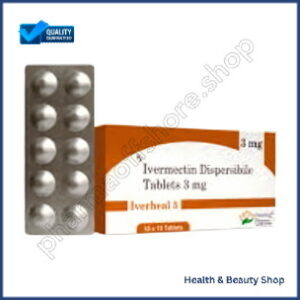
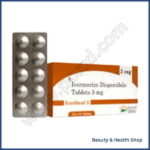
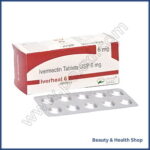
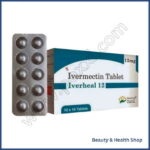

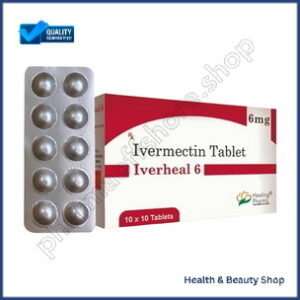

There are no reviews yet.